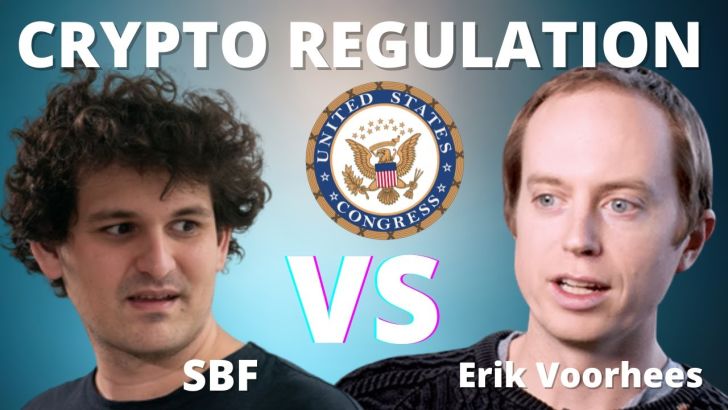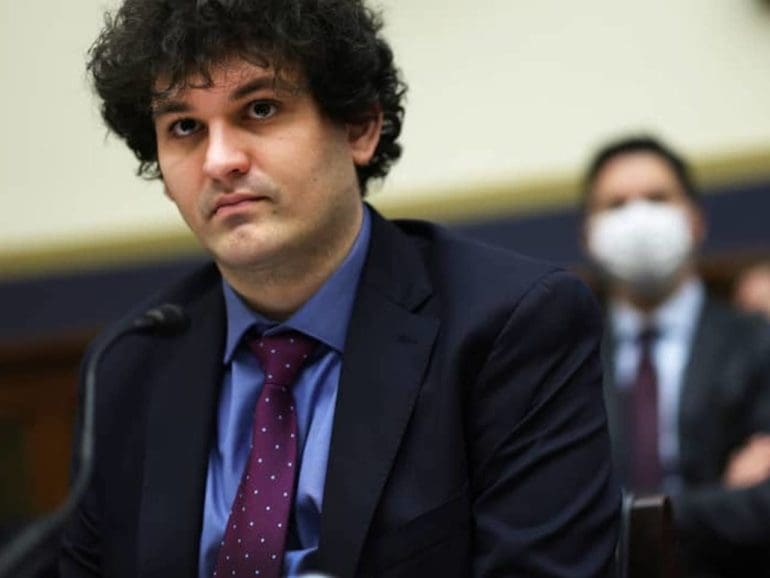Washington’s “crypto darling” has fallen.
Sam Bankman-Fried made a name for himself in the finance sector as “the face of crypto” much to the growing dismay of many in the crypto industry.
For months, the FTX founder engaged with regulators and donated funds to senators, carefully constructing an image of dependability — the “savior” of an industry in dire need of governmental oversight. Many are deeming his actions as “sociopathic.”
Now the veil of trust and authority has lifted, concern, uncertainty, and outrage are spreading.
As Jesse Powell, co-founder of Kraken, feared, many are using the example of FTX to further impress a need for more regulation across the entire DeFi industry. Since the extent of FTX’s fraud has been uncovered, multiple players within the U.S. senate have taken to their keyboards and podiums to further the regulatory agenda.
While regulators’ rallying cry rings across media streams, players in the DeFi space push back, urging for clearer distinctions. Bankman-Fried’s fraud for many is proof of a need for regulation of DeFi, but others believe it to be evidence of systematic confusion, propagated by his eagerness to advance his personal agenda.
One thing everyone seems to agree on — FTX’s fall on the back of Bankman-Fried’s deception is likely to shape DeFi’s development for years to come.
DCCPA in the balance
A key component of the regulatory issues surrounding FTX’s fall is the Digital Commodities Consumer Protection Act (DCCPA).
The DCCPA is a bill aimed at giving, “the CFTC the tools and authorities it needs to protect consumers, prevent fraud and abuse, and create transparency and accountability in the digital commodity marketplace.”
While its drafting is still in progress, a copy was leaked in mid-October showing what many considered to be indications that it could lead to a ban on DeFi as a whole.
Bankman-Fried, along with Coinbase, were subsequently criticized for supporting the bill, as people considered the wording to openly favor centralized exchanges and close the door on decentralized activity, thus pushing DeFi away from its objective.
This criticism was compounded by Bankman-Fried publishing a document on the FTX webpage, titled Possible Digital Asset Industry Standards, seemingly sidestepping the fundamentals of DeFi.
“It’s clear that he doesn’t come from the same ethos as many in the crypto world who believe that what we’re doing is antithetical to federal regulations. He was not of that cloth,” said Erik Voorhees, founder, and CEO of Shapeshift in an UnChained podcast episode with Laura Shin.
“What was really worrying… was how readily he was going to sacrifice DeFi, essentially sacrifice decentralized finance, such that the centralized financial regulations would be more in his favor.”
Regulating for transparency in an industry based on transparency
The confusion of regulators when regarding DeFi is apparent in the use of language used to describe the bill in official documents. The quoted text above was pulled directly from a “crypto one-pager” and defines the bill as necessary to increase transparency and decrease fraud in the DeFi space.
Bankman-Fried, as a self-made “face of crypto” did not help to clarify, which many criticized in the run-up to his demise.
While many centralized entities in the DeFi space, FTX included, continue to run business within a “black box” structure akin to traditional finance, DeFi itself was created to improve transparency.
Blockchain allows for information to be stored and traced with intrinsic immutability and most are public. Functioning on the blockchain, truly decentralized financial processes (true DeFi) can therefore be seen by anyone. While individual actors are identified by cryptographic addresses, the transactions they engage in are visible from the moment they are conducted.
“It’s really frustrating when the technology for complete transparency, real-time audibility is here and the regulators won’t adopt it, actively vilify it, and then aren’t themselves solving any of these fraud issues,” said Voorhees.
“These decentralized protocols solve these very problems. We don’t have to care about people’s intentions. We don’t have to care about human mistakes in the moment. All that we have to care about is code mistakes that can be viewed and audited and fixed.”
“There’s just such hesitancy for people to, step into the actual promise of crypto, because they’re comfortable in these little walled gardens, especially when they say that they’re the safe, regulated way to buy and sell Bitcoin, which I think was literally FTX is the slogan for all of their advertising.”
He argued FTX’s explosion could showcase the technology’s merits, by displaying the issues of the centralized black box approach and the lack of effectiveness of regulation of such entities, not DeFi as a whole.
“The focus needs to remain on the real crime here, which was the giving away of user assets and saying that they weren’t doing that…that is the real fundamental breach of trust here.”
Removing the need for trust
Pure DeFi was developed on the creation of a trustless system. The bitcoin whitepaper, which formed the foundation of DeFi, outlined a payment system that bypassed the need for trusted third parties by removing the need for trust.
RELATED: Is decentralization just a pipe dream?
“DeFi works where you simply remove the need for trust. We don’t need a licensing regime. Because that’s just meant to improve trust. We’ve removed the need for trust.”
“This is a huge breakthrough for humanity. And the politicians and regulators do not appreciate this at all. And they continue to vilify it wherever they can.”
Just two weeks prior to FTX’s explosion Voorhees had entered into a debate with Bankman-Fried, discussing his stance. Particular attention was paid to his willingness for DeFi to “respect OFAC sanctions”, blacklisting entire countries.
In an initial article responding to Bankman-Fried’s Possible Digital Asset Industry Standards piece, Voorhees stated, “OFAC is unjust and unethical, and is anti-American, as defined by the virtues upon which this country is built…anyone genuinely advocating for “an open, free economy” (principles on which DeFi is based) cannot support such blatant financial discrimination on millions of innocent people.”
He explained that in respecting the sanctions of entire countries, DeFi would be implicit in upholding a system based on the assumption that every person within a single country could be a criminal.
“The vast majority of Iranians, like the vast majority of Americans, are good people. They are not criminals. And to make a criminal of a good American because she does business with a good Iranian… is inexcusable for a nation that purports to be virtuous. Two good people interacting voluntarily with each other should not be a crime.”

Transparency of individuals
Related to this is the criticism of DeFi’s anonymity. An actor can set up as many individual addresses as required without a need to verify identity. For many, this is synonymous with crime and fraud perhaps forming the basis of regulators’ aim to “provide transparency” for an already transparent system.
In the interview with Shin, Voorhees said, “I think the way you resolve it is to recognize a first principle, which is the presumption of innocence.”
“This should be a fundamental part of American culture that if you haven’t been accused of a crime, you have the right to privacy. I mean, I thought there was like an amendment, you know, like the Fourth Amendment, guaranteed that that enshrined it. And it’s violated every single time someone goes to an exchange and has to surrender their personal identifying information, just because some regulator wanted to capture it.”
“We have such a backward system now where the government believes that exchanges that all financial intermediaries, for example, should be spying on everyone, everyone and reporting all that information back to the government when none of those people are even being accused of a crime.”
A custodial vs. non-custodial question
According to Vorhees, the distinction between custodial and non-custodial is fundamental in the aftermath of the FTX explosion and therefore should influence regulation going forward.
“This is a ‘custodian versus non-custodian’ thing. This is a ‘trust versus trustless system’ thing. This is a ‘centralized versus decentralized’ thing,” said Voorhees.
FTX was a centralized exchange providing custodial services, fundamentally working in a similar way to an entity in the traditional finance system. Users trusted the company to hold their assets, and this trust was broken.
In a DeFi system, assets are held by the users themselves on a system that can be tracked and audited by all.
“Consider that this is an issue of custodianship, this only happened because a custodian run by people could make subjective judgments about the assets within it. This happens in the banking system, this happens in the custodial cryptosystem, just the same. And if you want to put regulations on those people, I get that. Do not put regulations down on DeFi, assuming it is the same model. DeFi solves these very problems at a code level.”
This year has witnessed the fall of many major companies in the DeFi sector, all of them centralized entities. In contrast, DeFi protocols have ridden the waves of heightened volatility.
In lobbying for a crypto regulation that did not make the distinction between DeFi and centralized entities within the space, Bankman-Fried laid the groundwork for the confusion which has come even more into focus since FTX’s fall.


